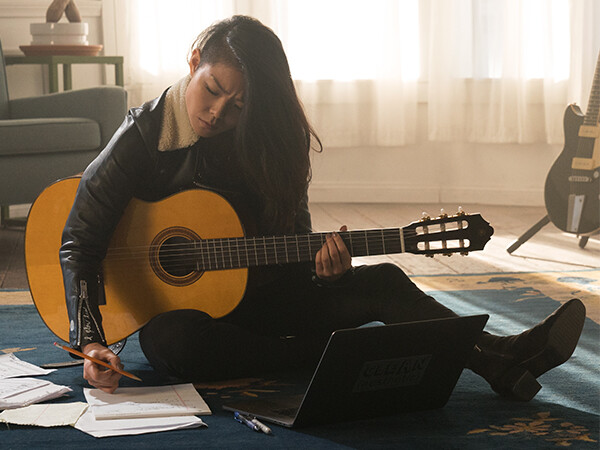On a Clear Day You Can Create Forever
Life hacks to burn through the fog.
You know you’ve got the gene. The DNA. The write stuff. You know this because you’ve witnessed it in yourself before, and once you have it, it doesn’t go anywhere.
But we can get mired into thinking that our creative “stuff” is displaced. Not quite writers block, or a specific song you can’t finish, but rather a temporary malaise or brain fog from, well, two years of being less connected with actual humans or the stress of worrying about when we’ll get back to performing live again. There are unlimited reasons. Life is messy.
Been there, done that. And I’ve learned a few lessons along the way. Here’s a list of things I’ve found that can help burn through the mist and allow you to start seeing clearly again.
1. Don’t give your malaise the power.
Look it in the eye and let it know who it’s dealing with. And then walk away. Do something else. Come back later and ask it if it’s changed its mind. Treat it like a game you played with a high school boyfriend/girlfriend. Tell him/her it’s over. Pretend you mean it. See what happens.
2. Wear something out of character.
Try an outfit that makes you feel like someone you’re not — an actor in someone else’s shoes. Literally. Go to the supermarket in workman’s boots, or to the gym in heels. I realize this sounds silly. But silly is good. Silly loosens us up.
3. Read a novel and try writing something from the main character’s perspective.
This can work especially well if you feel that you have nothing left to write about from your own perspective. The idea that anyone can run out of things to say is preposterous, of course, but remember, this is an exercise, not a way of life!
4. Listen to something out of the ordinary.
I suggest trying a score from an iconic musical because it can elicit all kind of unpredictable emotional responses you didn’t feel beforehand. For example, last summer I heard the LA Philharmonic perform “Somewhere” from West Side Story at the Hollywood Bowl on a beautiful night under the stars. I wept uncontrollably. My friend was concerned. I, on the other hand, was relieved. That’s what music is supposed to do. If I had to write a song on the spot that night, I could have.
5. Flip through old journals.
I have about 50 of them, dating back to when I was 12 years old. Sometimes I come upon a thought and marvel at how intuitive and concise I was back then — wise beyond my years, I like to think — only to conclude that it was because I didn’t have any excessive baggage yet and the naked truth wasn’t obfuscated by self-conscious prose or pressure to write well. Revisiting our innocence connects us with that unguarded honesty that listeners will relate to, perhaps because they’re having trouble accessing their own.
6. Bond with your instrument.
Tell it, swear even, that you’re just flirting — loosening up before a 5K run or vocalizing before a recital. Record yourself as you play (just in case something falls from the sky) and then forget about it. I’m not suggesting that something magical will fall from the sky during these practice sessions because then you’ll expect it to … and that’s exactly what you don’t want.
7. Give yourself a break.
I can tell you with complete assurance that all successful songwriters, composers, lyricists and musicians write appalling songs once in awhile — they just don’t share them with you. (For obvious reasons.) But if they’re your true friend, they should be able to admit this. (Like I am doing here.)
8. Go back and listen to material you’ve written before that made you proud.
Appeal to your intelligence, not to your emotions. Because you know deep down this is temporary. Time can be a frightening four-letter-word because time … well, it takes time! And patience. It’s the cure-all, however, for just about everything. Especially working through the fog. So have faith in it. Don’t stop. Don’t give up. Because on a clear day you can create forever.















